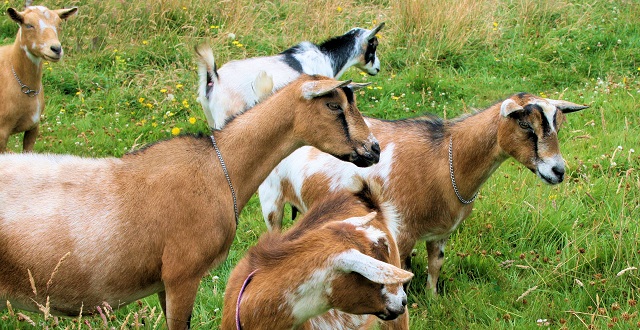
The Sunday News

Mhlupheki Dube
IN last week’s instalment I made an observation that there is a need for institutionalising market linkages within our extension services.
The thinking being smallholder farmers invest in all forms of livestock and they need to be able to redeem their investment when they wish to. The observation being that only the beef value chain has organised and structured market system while the poultry and piggery section is informal and irregular.
I wish to continue discussing the goat market system because I feel this is a neglected sector yet it is a potential area for developing smallholder farmers. One immediate thing that you will notice even when scanning through literature in goat production in Zimbabwe is that there are mostly lazy journal articles designed to fulfil academic requirements and not at all meant to scratch the real itching parts of goat production.
You will struggle to find market information on goats, like who are the buyers? What is the market share of goat meat compared to other forms of meat? The information you get is dwelling on the known production practices such as proper housing, animal health and kid mortality and skirts on the surface when it comes to where the rubber meets the tarmac. The markets and marketing. Our goat producers need answers to questions which really affect them such as why are we not buying their product?
The starting point of investigation being why do we have fewer shops selling goat meat compared to beef? Is beef more preferred to goat meat or it is just more available? Goat meat availability in shops, is it an issue of demand or it’s a supply issue? I think answers to some of these questions will enable us to begin to do an in depth appreciation of the goat market and tailor make solutions that address the specific issues.
I am of the opinion that just dismissing the issue of goat markets by simply saying there is no demand is very simplistic and actually pedestrian in analysis. It should not escape our minds that producers are the consumers hence if there are a lot of producers it can be inferred that there are equally many consumers. Why would producers produce what they do not eat? If you are a cattle producer you sell your animals to the abattoirs and on your way home you pass by a butchery and buy a pack of meat for your family, shouldn’t that be the same with goats? The question is where is goat meat when you want it?
Do you buy beef because you wanted beef or it was the only meat available in the butchery? Do the butcheries sell beef only because their customers prefer beef mostly or it is because the beef sector has organised marketing systems which enable them to get the numbers of cattle they want as and when they want them? I tend to identify with the last hypothesis which then begs more questions such as what needs to be done to formalise and structure the goat markets? Who are the critical players in formalising the goat market?
To me the starting point should be the authority which is tasked with conducting livestock sales. How did this authority let livestock sales degenerate to cattle sales? What about other forms of livestock? We need to assist our local authorities to develop proper infrastructure suitable even for goat sales. The current infrastructure is biased towards cattle sales, for example the holding pens cannot hold goats and these can easily escape. The next logical question would be how are the private players willing to develop the goat market? I do not think that goat farmers in Halisupi in Gwanda produce goats with Arab markets in mind.
They produce goats because they themselves consume goat meat and there are many other Zimbabweans who do. We should therefore disabuse ourselves of the notion that goat markets are external to Zimbabwe. It should not escape our minds that goat production helps to improve household incomes and eventually increase cattle numbers as goat producers if they are able to sell their goats, they can buy cattle from the proceeds. It is logically and financially easier for an average person to start by owning goats and graduate to cattle than it is to jump straight to buying cattle.
As a nation we need to seriously look at how we can improve the marketing side of our goat value chain.



